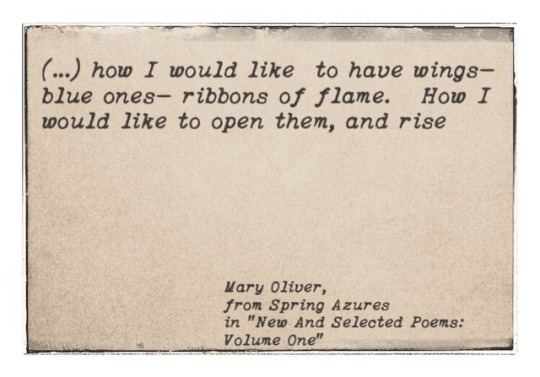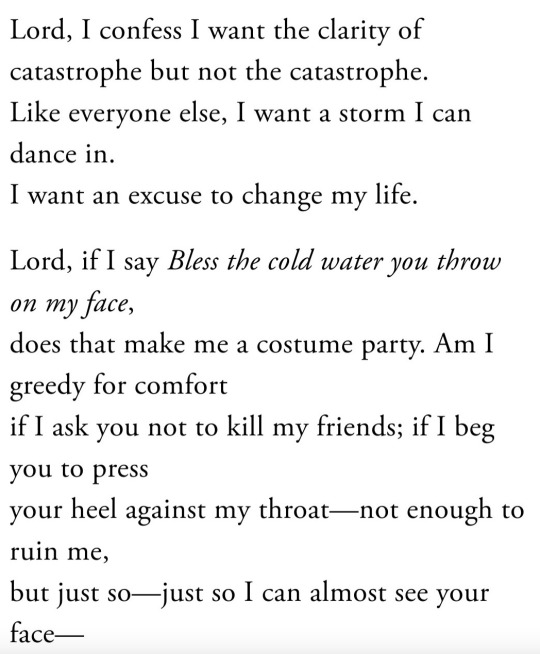Text
The matches are in!

If you signed up to join the summer chaos writing challenge, you should have no received an ask in your inbox or messages with details of who your writing buddy is! If you didn’t receive one and were expecting to, then please let me know!
Here is a link to the discord server! Its currently a little sad looking because I don’t use discord so often so if you have ideas or tips to improve the server you are welcome to share them! The server will be open to all writers whether you are participating or not! When you join head over to the introduction channel and share your tumblr user and a little intro if you would like so your writing buddies can find you!
now that you know who your buddies are consider talking about:
- a main character/cast
- tropes you’d like to write about
- discuss limits or no-go writing areas in more detail
- just get to know each other and connect!
in the meantime I will be setting up the shared files so we can get this show on the road!
Thank you all for your patience so far!
Keep reading
25 notes
·
View notes
Text
oh so when the reader knows something i don’t it’s “dramatic irony” but when i know something the reader doesn’t suddenly i’m an “unreliable narrator” 🙄
69K notes
·
View notes
Text
Summer Chaos Writing Challenge
Hello my loves, I am back after what feels like months away from tumblr!! The academic year is over and summer is upon us so as stated in my post here I would love to get the Summer Chaos Writing Challenge going if anyone is still interested!!
I will probably make another post on it but essentially what it is is that there shall be a shared document on which one story is written. The only thing that will be pre-planned are:
Genre/themes - though I recommend fantasy for maximum levels of unhinged revelry
Age/maturity rating for more intense scenes
A description of your main character/s
A rough writing schedule!
Once that is decided each person will take turns writing part of the story and the next person has to continue it and so on and so forth until the story reaches its end or otherwise!
A few rules:
Writers may not discuss the plot of the story, only themes/tropes they may want included
Writers cannot delete or edit the work of their partners you must work with the scene that has been written
If you cannot stick to the schedule/need more time at any point - let your partners know
Rights to this story are shared equally between all people working on it - no one can use the story to gain profit without approval from the whole group
Writers may withdraw from the story at any point in the challenge - its supposed to be fun but if you’re no longer enjoying it then it’s okay to stop!!
That all I have for now! I’m going to tag people who showed interest on my initial post, feel free to reblog and get involved! If there are quite a few people interested then I’ll see about breaking it down into groups to make it more manageable so everybody gets a bit of writing time during the week!
@forthesanityofsome @ink-fireplace-coffee @rokokokokolores @ryorine
41 notes
·
View notes
Text
characters who seem really cool at first glance but are absolutely pathetic with further context
16K notes
·
View notes
Photo

34K notes
·
View notes
Text
Narrative Botox: Filler Words and Phrases to Look Out For

If you’re planning on publishing traditionally, chances are you keep a sharp eye on your word count. Literary agents and publishing houses are on the hunt for the best quality stories that they can print for the cheapest price (using the least paper and ink), so you have a higher chance of gaining representation if you can crank your novel out in the least words possible.
However, filler words and phrases aren’t only the enemies of aspiring traditional authors; every writer—fanfic, novelist, journalist, you name it!—should try to eliminate filler from their stories to assure more concise and high-quality writing. Oftentimes, filler contributes nothing but clutter, and without it, your narrative can flow smoother and in a more sophisticated manner.
But how do you know what’s filler and what’s not? Here are some tips on how to Ctrl+F and kick this narrative botox to the curb!
I compiled these lists with the help of Infusionmedia, BDR Publishing, and ResetEra !
Filler Words

1. Just
A writer’s worst enemy, and the bane of my manuscripts’ existences. Eliminating all the ‘just’s can cut down your word count by hundreds.
2. “That” as a conjunction
It’s an unnecessary addition to a sentence, which will be more streamlined without it.
Example: “He said that he wouldn’t do it again.”
Revised: “He said he wouldn’t do it again.”
3. “Now” as an adverb
“Now” is essential if you’re talking about the past and present, but when you’re using it to draw attention to a particular statement or point.
Example: “Now, I didn’t think it’d get so out of hand.”
Revised: “I didn’t think it’d get so out of hand.”
4. Redundant adverbs
These adverbs serve no purpose because the verbs they’re describing already imply the way the action is performed.
Whispering softly
Yelling loudly
Crying sadly
Laughing happily
5. “Telling” words
These words are redundant, especially when using first person, because in describing an event, we can already assume that the characters are experiencing it.
Seeing/saw
Feeling/felt
Hearing/heard
Smelling/smelled
6. “Clarifying” words used to portray definiteness or indefiniteness
Although these are meant to help out the readers get their bearings on a situation, all they do is come across as wishy-washy! Be concise and sure of yourself!
About
Absolutely
Accordingly
Actually
Almost
Basically
Certainly
Clearly
Completely
Entirely
Even
Exactly
Fairly
Highly
Hopefully
Literally
Maybe
Only
Often
Oftentimes
Perhaps
Possibly
Probably
Quite
Rather
Really
Reasonably
Relatively
Seem
Seriously
Simply
Slightly
Some
Somehow
Sometimes
Totally
Very
Filler Phrases

1.“Let out (vocal noise)”
Use the verb instead!
Example: “He let out a sigh.”
Revised: “He sighed.”
2. Using passive voice
Passive voice inflates your word count by including various “to be” verbs into the prose. Passive voice involves actions happening to a subject rather than the subject performing an action, and as a result isn’t as riveting to the reader as active voice; even if it wasn’t a matter of word count, you’d still want to get rid of it anyway!
Still don’t know what I’m talking about? Check out this article from Grammarly.
Example: “The boy was bitten by the dog on his arm.”
Revised: “The dog bit the boy on his arm.”
3. Describing the wrong noun
Many writers will be as specific as possible about what “thing” is affected by the event they’re describing, when it’s much simpler to take a step back and write about something more general.
Example: “The level of water rose.”
Revised: “The water rose.”
4. Phrasal verbs
Phrasal verbs are the combination of two or three words from different grammatical categories—a verb and an adverb or a preposition—to form a single action. Usually, these phrasal verbs can be replaced by a single-word verb.
“Ask for” can be replaced with “request”
“Bring down” can be replaced with “reduce”
“Come across” can be replaced with “find”
Etc.
5. Clarifying phrases
Same reason as clarifying words. Get to the point!
A bit
A little
A lot
In a sense
Kind of
Sort of
6. Remember your contractions!
Even if your story takes place in olden times, I can guarantee that if you never use any contractions ever, your story’s gonna be a clunky mess. But sometimes you’re in the moment, consumed by the poetic power of the muses, and forget that this isn’t a soap opera; so make sure you check that you’ve been using your contractions!
It is, it was, it would, she is, would not, should not, is not, does not etc.
7. Inflated phrases
These phrases can be replaced with more concise words.
Along the lines of (shorten to: like)
As a matter of fact (in fact)
As to whether (whether)
At all times (always)
At the present (now or currently)
At this point in time (now or currently)
Be able to/would(n’t) be able to (could or couldn’t)
Because of the fact that (because)
By means of (by)
Due to the fact that (because)
Even though (though or although)
For the purpose of (for)
For the reason that (because)
Have the ability to (could)
In light of the fact that (because)
In order to (to)
In regards to (on or about)
In spite of the fact that (though or although)
In the event that (if)
In the nature of (like)
In the neighborhood of (about)
On the occasion of (when)
On one/two separate occasions (Once/twice)
The/A majority of (most)
There is no doubt that (No doubt)
Wasn(n’t) capable of (could or couldn’t)
Hope this helped, and happy writing!
21K notes
·
View notes
Text
Having OCs is the best because all my headcanons for them are confirmed
152K notes
·
View notes
Text

Portrait of a Girl, Ingrid, 1942
Sergius Pauser (Austrian,1896-1970)
22 notes
·
View notes
Text

Writer friends, I discovered a fun website today. It’s called “I Write Like” and here’s the description:
Check which famous writer you write like with this statistical analysis tool, which analyzes your word choice and writing style and compares them with those of the famous writers.
Let me know which autor you got!
81K notes
·
View notes
Photo

catastrophe is next to godliness by franny choi
8K notes
·
View notes
Text
reminders for writers.
nobody gives a crap if something is overdone in fiction. what they really care about is the execution
having a bad day of writing does not make you a bad writer
tropes ≠ clichés. if someone tells you it's wrong to use tropes, disregard the advice
writing in your second or third language isn’t always easy. you’re doing great
writing advice = tools. not rules. you’re not meant to follow every advice you read about on the internet. learn the rules so you know which ones to break
every writer is capable of writing a captivating story, but your story might not be everyone’s cup of tea, and that’s ok. there will still be people out there who’ll adore it
it’s ok to not excel at every genre! you can write things because you think it’s fun, doesn’t always have to be a matter of writing something because you’re good at it. it’s ok to explore (and it helps you improve as a writer!)
14K notes
·
View notes
Note
hello, this is my first time to ask a question. how to be a vivid, like when i want to describe a thing but it's just short and plain.
How to Make Your Description More Vivid
From an old post… :)There is a really wonderful book by Rebecca McClanahan called Word Painting, which I highly recommend to anyone wanting to make their writing sound more professional. Here’s some of my favorite advice from the book. Examples are my own:1) Use description to make the world of your book more real to the reader than the space they are currently inhabiting.2) Try not to describe things by labeling them. Instead, describe the attributes that lead you to the label. Instead of saying, “She was petting Max the cat.” You could say, “She put her hand in Max’s soft fur and felt the rhythm of his purring.”3) Describe a subject or object in motion, even if it isn’t in motion. A child who is running could have bouncing curls. A man who is sitting can be reading or smoking. Snow on the ground can be melting or glittering.4) Be sure to use the right, most appropriate word for an object. Don’t call a coffee mug a “glass.” Don’t describe your female mercenary as having “porcelain” skin, because “porcelain” implies fragility. You could just say she’s “fair-skinned” or that “her skin was as pale as white marble.“ 5) Sometimes, describing what isn’t there is more interesting than describing what is there. For example: You could say, “The rest stop was silent and the highway was abandoned.” But it sounds a little more interesting to say, “There was no sound coming from the highway now. No thundering semi-trucks, no rumbling motorcycles–not so much as an errant screech or piercing car horn.”6) Use active instead of passive prose. Passive: “The fence is being painted by the girls.” Active: “The girls are painting the fence.” Here is a great explanation of active versus passive voice.7) Don’t use filtering devices if you can help it. Words like “felt,” “saw,” “observed,” “noticed,” etc, take the focus away from what’s happening. “Her stomach clenched when the man drew his gun,” is much more effective than, “She felt her stomach clench when she saw the man draw his gun.”8) Avoid unnecessary suffixes, like -ful, -ment, -tion, -ance. For example, “Her tearful face was a demonstration of the candidness of her demeanor,” is really clunky. “Her tears demonstrated her candor,” sounds a lot better and is much more to the point.There is sooooooo much more in the book. That is really just the tip of the iceberg. So, if you can get it, do! Be sure you have sticky notes, a notepad, or a highlighter so you can mark the great information as you come to it.Go through your writing and see what you can change, then keep all of these tips in mind as you write in the future. Write as much as you can, because your writing will get better with practice.
982 notes
·
View notes
Note
I feel I often overdescribe my scene but I really struggle cutting things down. Sometimes it's that I point out every little movement a character makes so it's clear where they are in a scene, other times I reword basically the same description to try and give a detailed image of what I'm describing. I feel it detracts from the punch of a given scene and I don't know how to resist it. So do you have any advice on cutting the fluff/how to decide what to include and what not to include?
The 3 Fundamental Truths of Description
And 5 Tips for Cutting Back on Over Description
Truth #1 - No One Cares as Much as You Do
No one cares about the thing you’re describing as much as you do. You’re the writer, so even the tiniest details matter to you, but they don’t matter to the reader. The reader wants just enough detail for a general idea of what the thing looks like, and they’re good to go. They don’t want to be bogged down with details that aren’t ultimately important.
Truth #2 - No One Else Will See What You’re Imagining
I don’t care how much time you spend describing the ornate glass vase on your protagonist’s dining room table. NO ONE will imagine exactly what you’re imagining unless it’s a really well known thing that literally anyone can conjure up in their mind, at which point the description is unnecessary. The thing about people is we all come from different backgrounds, have different experiences, different preferences, different biases, and we use those presets when we interpret things that are described to us.
Truth #3 - They’re Going to Forget Anyway
A literature teacher did an experiment where she had everyone in her classes read the first Harry Potter book. She grouped the students in each class according to their experience with the series--whether that was their introduction, whether they’d seen the movies, or whether they were huge fans who’d read the series and seen the movies. She then asked everyone to describe Hogwarts in as much detail as they could. The most vivid description came from the students who had read the books and seen the movies. The students who had only read the book in class or who had only seen the movies had the least detailed, least accurate descriptions. In fact, the average description for those who’d only read the book in class was along the lines of, “It’s a big castle.”
Tips for Cutting Back on Over Description
1) Awareness is Key - Knowing that you’re over describing, and knowing where you’re doing it, is the first step in cutting back.
2) Keep the Truths in Mind - When you’re describing anything, remember those three fundamental truths. Stick them on a post-it if you have to.
3) Stick with the Important Details - If an element of something is important to the story, by all means, make sure you describe whatever is important about it. But if your character’s elaborately set dining table only serves to show her extravagance, pick two or three details that show that off and leave it at that.
4) Give the Reader Credit - You don’t need to say your character took hold of the burger, lifted it to their mouth, opened their mouth, put the burger in, bit down on it, chewed, and swallowed. Everyone has eaten a hamburger or something similar. We all know how it’s done. “He took a bite of the burger” will suffice.
5) It’s all in the Editing - But, honestly, don’t sweat it so much while you’re writing the first draft. The whole point of a first draft is to get everything down on paper so you can decide what’s necessary and what’s unnecessary. Editing is where you look at a sentence like, “He took hold of the burger, lifted it to his mouth, opened his mouth...” and change it to, “He took a bite of the burger.”
If you’ve never seen it before, I HIGHLY recommend going to YouTube and looking up Hannah Lee Kidder’s edit of the first couple chapters of Twilight. This is a FANTASTIC crash course in how to tighten up writing and cut back on unnecessary description. Plus, she’s funny and she gives fantastic writing advice. And sometimes she posts videos of herself cleaning her house, which is awesome if you hate cleaning and need motivation like I do!!!
Also, I answered a similar question here, with a few additional tips. :)
————————————————————————————————-
Have a question? My inbox is always open, but make sure to check my FAQ and post master lists first to see if I’ve already answered a similar question. :)
549 notes
·
View notes
Text
Do you have a favorite line of your WIP?
Do you have a favorite WIP out of your long list of works?
Do you have a favorite character of yours or someone else's?
Submit your faves to this blog to have them boosted to the rest of writeblr and perhaps your faves will gain more fans.
125 notes
·
View notes
Text
Writeblrs, REBLOG THIS (likes will be ignored) if you make original content about any of the following:
Queer shit ✨
Neurodivergent shit
Urban fantasy, paranormal, contemporary, dark academia, romance
Dash is pretty devoid of original content so I’d love to follow new people and learn about your wips. If you have a particular wip you want me to look into tag it in your reblog :D
447 notes
·
View notes
Text
controversial writing tip
open a document and start writing
252K notes
·
View notes
Text
What if I were to…. restart my entire first draft? Haha, just kidding. Unless….?
0 notes